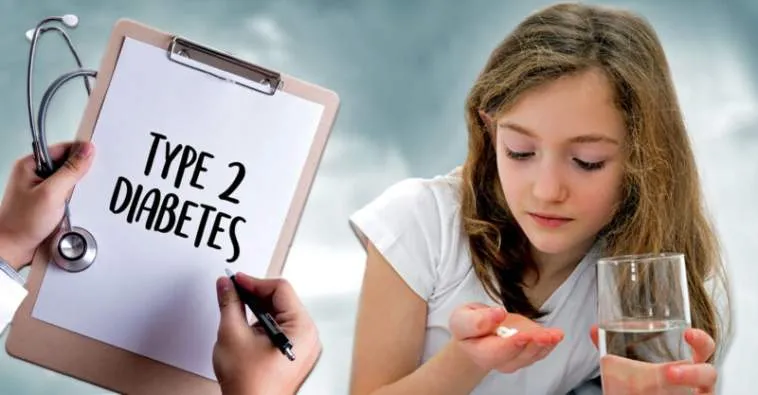(The Defender) The U.S. Food and Drug Administration (FDA) this week approved two drugs to treat Type 2 diabetes for children ages 10 and up, “as additions to diet and exercise,” the agency said.
The drugs — Jardiance (empagliflozin) and Synjardy (empagliflozin and metformin hydrochloride) — previously were approved for adults with Type 2 diabetes to improve blood sugar control.
They join metformin, approved in 2000 to treat Type 2 diabetes in children.
“Compared to adults, children with Type 2 diabetes have limited treatment options, even though the disease and symptom onset generally progress more rapidly in children,” said Michelle Carey, M.D., MPH, associate director for therapeutic review for the Division of Diabetes, Lipid Disorders, and Obesity in the FDA’s Center for Drug Evaluation and Research.
But critics like pediatrician Dr. Elizabeth Mumper said the agency’s action ignores the root causes of Type 2 diabetes in children while generating profits for pharmaceutical companies:
“Rather than doing the hard work of preventing chronic diseases by cleaning up multiple environmental sources of harm to children, we allow the pharmaceutical industry to spend millions to develop drugs that do not address root causes of conditions like diabetes but do create lifelong medicine customers.”
Mumper, the former medical director of the Autism Research Institute, said “a pill for every ill” is “not a good strategy for pediatric care.”
Type 2 diabetes used to be called “adult-onset diabetes” — but now we are seeing it in younger and younger ages, Mumper told The Defender. In her state of Virginia, 31% of children are overweight or obese, she said.
“This is a clear risk factor for insulin resistance progressing to Type 2 diabetes,” Mumper said, adding:
“We are redefining normal by assuming Type 2 diabetes is a reasonable condition in children to treat with medicine instead of attacking the root causes of this ever-increasing chronic condition.
“We continue to allow Big Food to sell food-like products which are devoid of nutritional value and filled with sugar and bad fats that are addicting and proinflammatory.”
‘System is rigged for Big Food and Big Pharma, with kids … as the losers’
Nina Teicholz, author, science journalist and founder of The Nutrition Coalition — a “non-profit, non-partisan educational organization that aims to improve health in America by ensuring that the public receives evidence-based nutritional advice” — also emphasized the importance of diet in successfully preventing and managing Type 2 diabetes.
Commenting on the FDA’s new drug approval, she said, “This is another Pharma victory, promoting drugs while ignoring diet,” adding:
“The system is rigged for Big Food and Big Pharma, with kids, getting fatter and sicker, as the losers.”
We’ve known for more than a decade that people can safely reverse their Type 2 diabetes through diet alone — “within a matter of just weeks,” Teicholz said. “But multiple government agencies ignore this lifesaving science while the FDA approves drugs instead.”
Adult participants in a 2017 peer-reviewed study who used a ketogenic diet to manage their blood sugar levels reported a 1.0% reduction in their hemoglobin A1c — while reducing their medications — and were still sustaining that reduction one year later, Teicholz said.
In contrast, the FDA safety and efficacy trial of empagliflozin — the active ingredient in the two newly approved products — showed the drug reduced the recipients’ hemoglobin A1c by 0.2% in 26 weeks.
According to the authors of a study released Thursday:
“Type 2 diabetes, which makes up the bulk of diabetes cases, is largely preventable and, in some cases, potentially reversible if identified and managed early in the disease course. However, all evidence indicates that diabetes prevalence is increasing worldwide, primarily due to a rise in obesity caused by multiple factors.”
The study, published in The Lancet, projected the number of adults with Type 2 diabetes will more than double — to 1.3 billion — by 2050.
‘Shockingly low’ clinical trial sample size makes it impossible to assess adverse events
Commenting on the FDA’s safety and efficacy trial for the drugs, Brian Hooker, Ph.D., P.E., senior director of science and research for Children’s Health Defense, told The Defender:
“The sample size for this clinical trial is shockingly low. Given that 157 patients were split into three separate treatment groups, it was impossible to properly assess adverse events from the drug.
“I would expect that the trial be at least 10 times larger with a longer period of follow-up than 26 weeks, given that these children would be on the drug indefinitely.”
According to the product’s website, Jardiance can have serious side effects, including increased ketones in blood or urine — which may be accompanied by nausea, vomiting, abdominal pain, tiredness and breathing difficulty, allergic reactions, dehydration, serious urinary tract infections, yeast infections, low blood sugar and necrotizing fasciitis.
Necrotizing fasciitis is “a rare but serious bacterial infection that causes damage to the tissue under the skin in the area between and around your anus and genitals (perineum),” the company said.
Synjardy listed the same possible side effects, plus a possible deficiency in vitamin B12 caused by using metformin for long periods of time.
The drugs are manufactured by insulin producer Eli Lilly and its partner Boehringer Ingelheim.
Eli Lilly’s revenue for the quarter ending March 31 was $6.960 billion.
The pharmaceutical industry in 2022 funded about 75% of the FDA’s drug division, The New York Times reported.






